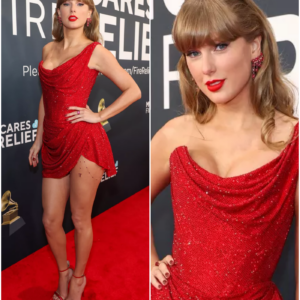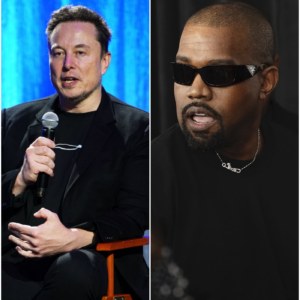Prince vs. the Music Industry: A Battle for Artistic Freedom Against Jay-Z, Diddy, and Warner Brothers
Prince Rogers Nelson, known worldwide simply as Prince, left an indelible mark on the music industry with his talent, vision, and outspoken resistance to corporate control. His life and career were a powerful blend of creativity and defiance, most notably against industry giants like Warner Brothers, Jay-Z, and Diddy. With a career that spanned several decades and revolutionized music, Prince’s journey reveals his complex battle to preserve his autonomy, creativity, and legacy amidst the music industry’s darker undercurrents.
Prince’s journey in the music industry began in 1977 when, at just 18, he signed a record deal with Warner Brothers. The label saw his immense talent and granted him creative control—a rare occurrence for a young artist. Prince, a prodigy who could play over 20 instruments, wrote and produced his own music, displaying a level of autonomy that was almost unheard of. However, despite the creative freedom Warner Brothers allowed, they retained ownership over his work. As Prince’s fame grew with hits like Purple Rain and When Doves Cry, Warner Brothers tightened its control over him, turning their initial support into an increasingly suffocating grip.
Determined to claim his creative rights, Prince rebelled against Warner Brothers’ constraints in a historic way. Famously, he changed his name to an unpronounceable symbol to separate himself from the music and brand that Warner Brothers technically owned. He was one of the first artists to publicly battle for artistic rights and intellectual property in such a bold and visible way, bringing attention to the exploitative practices that many artists faced behind closed doors. To make his stance clear, Prince often appeared with the word “SLAVE” written across his face, a powerful statement about the control the industry held over him and other artists.
Prince’s skepticism of the music industry extended to high-profile figures like Jay-Z and Diddy, both of whom reportedly tried to sway Prince into deals benefiting their interests. Jay-Z’s streaming service, Tidal, approached Prince with a proposal to move his entire catalog to their platform. However, Jay-Z reportedly wanted control over the rights to Prince’s music—a condition Prince refused. Knowing the importance of ownership from his own struggles with Warner Brothers, he rejected Jay-Z’s proposal and any attempts to commercialize his legacy without his oversight. After his death, this battle continued, with Prince’s estate accusing Jay-Z’s company, Roc Nation, of attempting to profit from Prince’s work.
Diddy’s relationship with Prince was also strained. Though Diddy publicly expressed admiration for Prince after his passing, fans speculated that his ties to Warner Brothers, the very label Prince fought for decades, complicated his sincerity. Allegedly, Prince warned other artists about the “freaky” and exploitative parties linked to Diddy and Jay-Z. Prince’s own gatherings, such as his legendary 3121 parties, were seen as a safer alternative that focused on artistic community rather than industry control. His influence was felt by those who sought creative refuge, and these events stood in stark contrast to the rumored environments of manipulation at other industry parties.
Many fans believe Prince’s outspokenness about these industry issues made him a target. His sudden passing in 2016 led to questions about the circumstances, with some speculating that his death was more than an accident. While authorities concluded that he died from an accidental overdose, some fans believe there may be more to the story, especially given the timing of his conflicts with major industry players. Prince had made it his mission to expose and fight back against the exploitation in the music industry. His vocal warnings to fellow artists about ownership rights and control resonated deeply, furthering his legacy as both a musical and a moral icon.
As his career progressed, Prince continued to voice his dissatisfaction with industry practices, calling for artists to retain ownership of their intellectual property. Prince understood that creativity and autonomy were intertwined, and his refusal to yield set a precedent. His battle with Warner Brothers and refusal to cooperate with Jay-Z and Diddy revealed a deep understanding of the stakes involved when ownership is lost. In an interview, he compared the music industry’s control over artists to a delivery service falsely claiming ownership over the items they transport. This comparison highlighted the industry’s exploitative nature and the lengths he would go to maintain his creative freedom.
Prince’s legacy lives on as a symbol of artistic integrity and resistance. His story resonates with today’s artists who seek control over their work in an industry still dominated by corporate interests. By standing up to powerful figures like Jay-Z and Diddy and challenging his label, Prince left an enduring message about the value of artistic autonomy. The lessons from his life continue to inspire musicians, reminding them that their art—and their rights—should never be compromised.
News
(B) KIM Kardashian has set strict rules for ex-husband Kanye West in order for him to see their four kids
Kim’s troubled ex-husband has ‘crossed a line,’ source claims KIM Kardashian has set strict rules for ex-husband Kanye West in order for him to see their four kids, The U.S. Sun can report. Doting mom Kim, 44, along with family matriarch Kris…
(B) Barker hosted his Run Travis Run event ahead of performing at the FanDuel x Spotify Super Bowl Party
Barker hosted his Run Travis Run event ahead of performing at the FanDuel x Spotify Super Bowl Party Travis Barker is still struggling with his fear of flying after narrowly surviving a deadly plane crash more than 16 years ago. In September…
(B) “Taylor Swift’s Surprising Move at Grammy Afterparty Leaves Everyone Talking”
Taylor Swift Doubled Back to Tip Workers as She Exited Grammy Party The “Karma” singer thanked four employees for their service on her way out Taylor Swift. Photo: Kevin Mazur/Getty Taylor Swift is a kind queen. In fan video captured after the 2025…
(B) Elon Musk has revealed that the public “won’t be seeing” Kanye West’s X account after the rapper’s shocking online rampage.
Elon Musk has revealed that the public “won’t be seeing” Kanye West’s X account after the rapper’s shocking online rampage. Kanye West went on a shocking online rampage last week. Credit: Gotham/Getty As previously reported, the 47-year-old musician – who caused uproar…
(B) Travis Kelce’s ‘reaction to Taylor Swift being booed at Super Bowl 2025’ revealed
Travis Kelce’s ‘reaction to Taylor Swift being booed at Super Bowl 2025’ revealed Travis Kelce had an emotional reaction to his girlfriend Taylor Swift getting booed at the Super Bowl. Swift received an unexpectedly chilly reception during Super Bowl LIX at Caesars…
(B) Why Kendrick Lamar wasn’t paid for performing at the Super Bowl halftime show
Why Kendrick Lamar wasn’t paid for performing at the Super Bowl halftime show Kendrick Lamar just delivered an electrifying halftime performance at Super Bowl LIX — but you may be surprised by how much he’s getting paid for it. Kendrick…
End of content
No more pages to load











